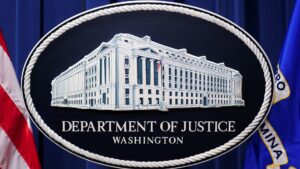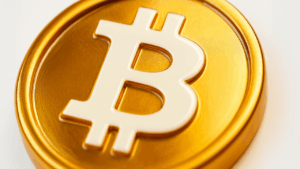Crypto Market Surge: Bitcoin Hits New Highs Amid Growing Adoption Trends

Weekly Update on Digital Asset Regulation and Developments
Senate Banking Committee Discusses Future of Digital Asset Markets
On July 9, the Senate Banking Committee convened a hearing titled “From Wall Street to Web3: Building Tomorrow’s Digital Asset Markets.” This session aimed to explore bipartisan initiatives for creating a federal regulatory framework for digital assets. Key witnesses included Ripple Labs CEO Brad Garlinghouse, Blockchain Association CEO Summer Mersinger, and former CFTC Chair Timothy Massad, among others. The discussion highlighted the necessity for modern regulations that encourage innovation while safeguarding consumers. Chairman Sen. Tim Scott emphasized that the market should dictate the rules governing digital assets, advocating for legislation that positions the U.S. as a leader in blockchain technology. Despite differing opinions, there was a consensus on the importance of regulatory clarity and consumer protection. Garlinghouse pointed out that the crypto market now encompasses over 55 million participants in the U.S. and has a global market cap of $3.4 trillion. He cautioned that the lack of clear regulations hinders progress and can be exploited against responsible industry players. This hearing sets the stage for the upcoming Crypto Week in the House, where significant digital asset legislation is anticipated.
- Senate Banking Committee Discusses Future of Digital Asset Markets
- SEC Commissioner Affirms Tokenized Securities Are Subject to Regulations
- Senator Lummis Proposes Comprehensive Crypto Tax Reform
- Upcoming Senate Hearing on Digital Commodity Regulation
- House Plans ‘Crypto Week’ for Legislative Advancements
- Truth Social Files for Blue-Chip Crypto ETF
- Hong Kong to Implement Stablecoin Licensing Regime
SEC Commissioner Affirms Tokenized Securities Are Subject to Regulations
On the same day, SEC Commissioner Hester Peirce issued a statement clarifying that tokenized securities are still governed by federal securities laws, irrespective of the technology used. While acknowledging the advantages of tokenization, such as enhanced capital formation and asset mobility, she stressed that the legal status of a digital asset remains unchanged. Peirce provided two scenarios where tokenized securities would fall under federal regulations: when a token acts as a “receipt for a security” and when it does not confer legal ownership of the underlying asset, potentially categorizing it as a “security-based swap.” She urged token issuers and intermediaries to carefully evaluate their disclosure obligations and engage with the CFTC when designing tokenized products. Additionally, Peirce encouraged market participants to collaborate with the SEC to explore exemptions and modernize existing regulations.
Senator Lummis Proposes Comprehensive Crypto Tax Reform
On July 3, Senator Cynthia Lummis introduced a significant tax reform bill aimed at updating the federal tax framework for digital assets. The proposed legislation includes a de minimis exemption of $300 for everyday crypto transactions, set to take effect in 2026, with an annual limit of $5,000 and future inflation adjustments. The bill also seeks to postpone tax liabilities for mining, staking, and airdrop rewards until the assets are sold. Other provisions aim to extend securities-lending protections to digital assets, apply the wash-sale rule to cryptocurrencies and related derivatives, and remove appraisal requirements for charitable donations involving actively traded tokens. Lummis stated that the bill is designed to lower regulatory hurdles and is currently open for public feedback.
Upcoming Senate Hearing on Digital Commodity Regulation
The U.S. Senate Committee on Agriculture, Nutrition, and Forestry is scheduled to hold a hearing on July 15 titled “Stakeholder Perspectives on Federal Oversight of Digital Commodities.” This session will allow lawmakers to gather insights from industry stakeholders regarding the regulatory framework for digital commodities. The hearing is expected to shed light on ongoing discussions about whether the SEC or CFTC should oversee digital asset regulations.
House Plans ‘Crypto Week’ for Legislative Advancements
On July 3, Chairman French Hill of the U.S. House Committee on Financial Services announced that the House will focus on advancing key crypto legislation during the week of July 14. House Speaker Mike Johnson indicated that three major legislative proposals are on the agenda: the CLARITY Act, the Anti-CBDC Surveillance State Act, and the Senate’s GENIUS Act. These initiatives aim to promote economic growth and establish a clear regulatory framework for digital assets. Rep. Bryan Steil emphasized that these measures are designed to enhance consumer protection and strengthen the U.S.’s competitive edge in global digital asset innovation.
Truth Social Files for Blue-Chip Crypto ETF
On July 8, Trump Media & Technology Group submitted an S-1 registration statement to the SEC for its proposed Truth Social Crypto Blue Chip ETF, designated to trade under the ticker B.T. This fund, structured as a Nevada business trust and sponsored by Yorkville America Digital, aims to hold a diversified portfolio of five major cryptocurrencies, with target allocations of 70% Bitcoin, 15% Ether, 8% Solana, 5% Cronos, and 2% XRP. Foris DAX Trust, affiliated with Crypto.com, will act as custodian and liquidity provider. Pending SEC and NYSE Arca approval, the ETF is expected to list on NYSE Arca and will issue shares in blocks of 10,000 through authorized participants, not classified as a commodity pool under CFTC regulations. This marks the company’s third attempt to register a crypto ETF, following earlier filings for Bitcoin and Ether funds.
Hong Kong to Implement Stablecoin Licensing Regime
Hong Kong is set to launch its new stablecoin licensing framework on August 1, as part of a broader strategy to cultivate a regulated and innovative virtual asset ecosystem. Financial Secretary Christopher Hui confirmed that this initiative is a cornerstone of the region’s updated digital asset strategy, “Policy Statement 2.0,” which focuses on legal streamlining and tokenized product expansion. Under the new regulations, issuers of fiat-backed stablecoins must obtain a license from the Hong Kong Monetary Authority and ensure that their tokens are fully backed by high-quality liquid reserves to protect investors and maintain financial stability. The Hong Kong government is also promoting the tokenization of real-world assets, such as bonds and precious metals, while reviewing legal frameworks and tax policies to support wider blockchain adoption. Major firms, including Ant Group, have expressed interest in participating once the new regime is in place.







